
Hollywood, the land of dreams, glitz, and glamour. We often see stars lighting up the big screen, delivering unforgettable performances that stick with us long after the credits roll. But what happens behind the scenes when things don’t go quite as planned? The film industry, it turns out, is notoriously fickle, and sometimes, even after an actor has seemingly landed that dream role, things can go spectacularly wrong.
Imagine nailing that audition, getting cast in a high-profile movie, maybe even starting filming, only to be told, “Thanks, but no thanks.” It sounds brutal, right? Well, it happens more often than you might think. Directors aren’t afraid to make tough calls and unceremoniously ditch their actors, sometimes for reasons that are wilder than any movie plot twist.
Whether it’s clashing egos, creative differences, or simply not being the ‘right fit’ once the cameras start rolling, some of the biggest names in the business have faced the awkward, often painful, reality of being fired from a major movie. Let’s dive into some of these infamous instances and see what went down.
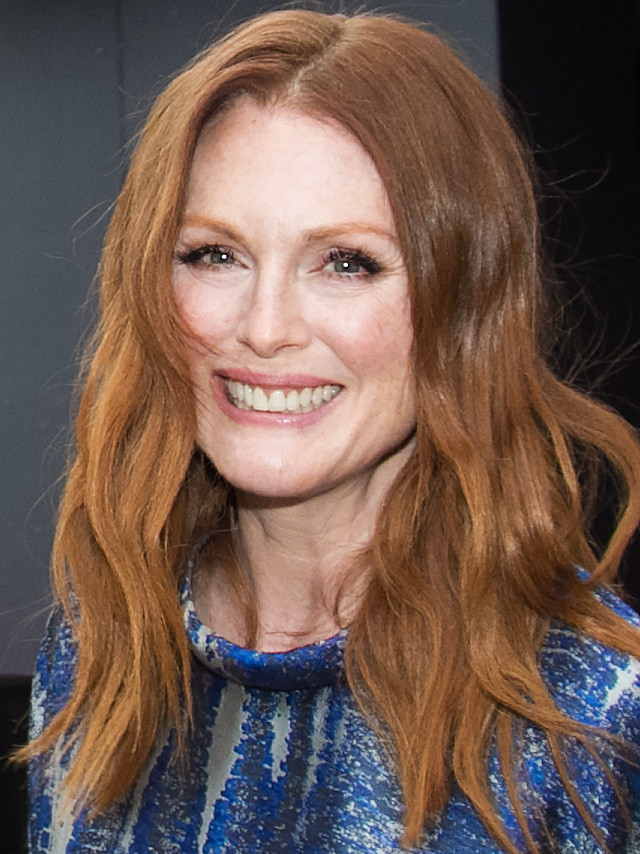
1. **Julianne Moore, Can You Ever Forgive Me?**: Julianne Moore was all set to play the lead role of notorious literary forger Lee Israel in the film *Can You Ever Forgive Me?* Production was reportedly about to begin, with Moore in place as the star. This seemed like a perfect fit for the acclaimed actress.
However, just a few days before shooting was scheduled to start, Moore was sent packing. She later revealed that the film’s co-writer and then-director, Nicole Holofcener, was the one who fired her. According to Moore, the reason boiled down to a difference in vision for the character. “I think she didn’t like what I was doing,” Moore explained. “I think that her idea of where the character was different than where my idea of where the character was, and so she fired me.”
Adding another layer to the story, Richard E Grant, who appeared in the finished film, claimed that Moore “wanted to wear a fat suit and a fake nose.” This suggests that the disagreement over the character’s portrayal might have been quite significant, extending even to her physical appearance on screen. Moore hasn’t seen the film since because, as she said in 2019, “it’s still kind of painful,” highlighting just how impactful such an experience can be, even for a seasoned star.

2. **Ryan Gosling, The Lovely Bones**: Ryan Gosling is known today as a certified Hollywood heartthrob, but there was a moment when his physical appearance was the very reason he lost a major role. He was cast as a father grieving his murdered daughter in Peter Jackson’s adaptation of *The Lovely Bones*.
To prepare for the role, Gosling took a somewhat unconventional approach, deciding his character should be heavier. He intentionally gained about 60 pounds, reportedly even drinking melted Haagen-Dazs ice cream to help pile on the weight. His reasoning? “I really believed he should be 210 pounds,” he explained later.
However, this didn’t align with director Peter Jackson’s vision. Gosling showed up on set having gained the weight, only to find that the filmmakers had a “different idea of how the character should look.” He reflected on the lack of communication during pre-production, saying, “We didn’t talk very much during the pre-production process which was the problem.” The result? As Gosling put it candidly, “I just showed up on the set, and I had gotten it wrong. Then I was fat and unemployed.” Mark Wahlberg eventually took over the role.

3. **Megan Fox, Transformers: Dark Side of the Moon**: Megan Fox’s career was seriously taking off after starring in the first two *Transformers* blockbusters. But ahead of the third film, *Transformers: Dark Side of the Moon*, an interview she gave caused a massive stir that ultimately cost her the job.
In a profile for Wonderland magazine, Fox made some highly critical remarks about the film’s director, Michael Bay. She didn’t hold back, famously likening him to Hitler. “He’s like Napoleon, and he wants to create this insane, infamous madman reputation,” she told the publication. “He wants to be like Hitler on his sets, and he is.” Ouch.
Unsurprisingly, these comments didn’t go over well. Bay later revealed that the film’s executive producer, Steven Spielberg, heard about the “Hitler thing” and specifically told him, “Fire her right now.” Fox’s character was written out of the next movie, and she was replaced by model Rosie Huntington-Whiteley. Looking back, Fox called the incident “absolutely the low point of my career,” but also acknowledged it was a learning experience. She felt she should have simply apologized but refused to at the time, admitting, “I was so self-righteous at 23, I couldn’t see [that] it was for the greater good.”

4. **Natalie Portman, Romeo + Juliet**: Baz Luhrmann’s vibrant, frenetic film adaptation of *Romeo + Juliet* is now iconic, with Leonardo DiCaprio and Claire Danes cemented in the title roles. But before Danes was cast as Juliet, a very young Natalie Portman was initially lined up for the part, beating out many other hopefuls.
Portman was quite young at the time, in her early teens, while DiCaprio, playing Romeo, was 21. As rehearsals began, it became clear that the age difference posed a challenge, particularly for the romantic scenes the characters share. The combination of Portman’s age and DiCaprio’s age made certain interactions feel “not appropriate” in the eyes of the film company and the director.
Portman later described it as a “complicated situation,” stating, “At the time I was 13 and Leonardo was 21, and it wasn’t appropriate in the eyes of the film company or the director, Baz.” She also mentioned it was “kind of a mutual decision” that it wasn’t going to work out at that point. Luhrmann himself elaborated in a later interview, explaining that seeing “Leo in the flesh, he’s a tall, young man,” made them realize Portman was “too young,” and it was “too much of a burden for her at that age.”
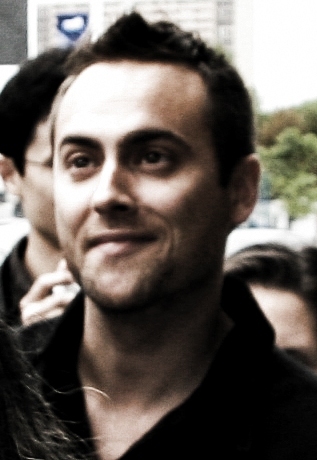
5. **Stuart Townsend, The Lord of the Rings**: It’s almost impossible to imagine anyone other than Viggo Mortensen as Aragorn in Peter Jackson’s *Lord of the Rings* trilogy. However, for a brief period, the role was actually going to be played by Irish actor Stuart Townsend.
Townsend was cast as Aragorn and reportedly spent months in training and rehearsals for the epic fantasy films. He was fully immersed in the pre-production process, getting ready for the massive undertaking of bringing Tolkien’s world to life on screen.
But then, just a few days into the actual shoot, Townsend was let go. He later said, “The director wanted me and then apparently thought better of it because he really wanted someone 20 years older than me and completely different.” He admitted he had “no good feelings for those people in charge” after the experience. The producers then had to scramble, calling Viggo Mortensen, who is 14 years older than Townsend, and asking him to fly out to New Zealand immediately to take over the role.
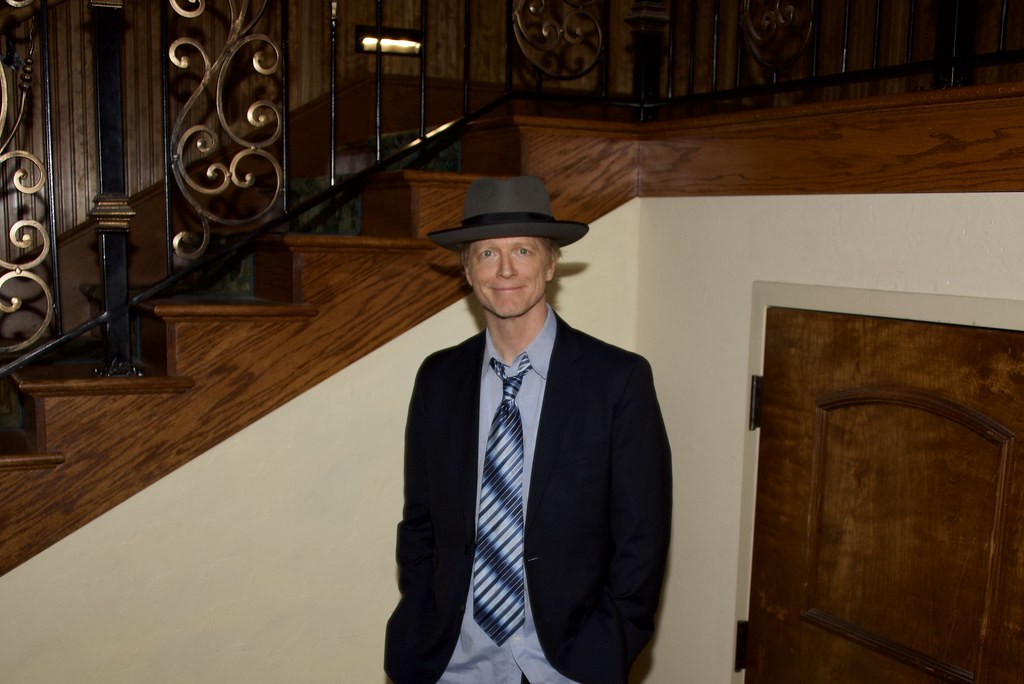
6. **Eric Stoltz, Back to the Future**: The role of Marty McFly in *Back to the Future* is synonymous with Michael J. Fox. But believe it or not, another actor, Eric Stoltz, was initially cast and even filmed scenes before being replaced.
Michael J. Fox was the filmmakers’ first choice, but he was busy with his sitcom *Family Ties*. So, they cast Eric Stoltz in the lead role. However, after several weeks of filming, it became apparent that Stoltz wasn’t quite the right fit. The producers realized he lacked the specific comic timing needed for the character, which Fox naturally possessed.
Furthermore, reports suggested that Stoltz’s method acting approach on set reportedly caused some friction with his fellow cast and crew members. Ultimately, director Robert Zemeckis made the difficult decision that Stoltz had to go. Zemeckis called breaking the news “the worst experience of my career,” a testament to how tough such decisions are. Fox was then brought in, working a grueling schedule filming *Family Ties* by day and *Back to the Future* by night. Stoltz later reflected on his firing, calling it a “freeing” experience that prompted him to reinvest in his craft.

7. **Harvey Keitel, Apocalypse Now**: Francis Ford Coppola’s *Apocalypse Now* is famous for its challenging production. One of the early hurdles involved the casting of the lead role, Captain Willard, the soldier tasked with assassinating Colonel Kurtz. Harvey Keitel was initially cast for this pivotal part.
However, after filming began, Coppola decided Keitel wasn’t right for the role. In a book about the film’s making, Coppola claimed he could see Keitel “was very uncomfortable about conditions in the jungle.” He worried about how Keitel, whom he described as a “city guy who’s afraid of it,” would fare over six months in difficult jungle conditions and concluded, “Not only do I think he’s wrong casting, but what’s it going to be like for six months in these difficult conditions in the jungle for a city guy who’s afraid of it?”
Keitel disputed this version of events, pointing out his real-life experience: “Well, Harvey Keitel spent three years in the United States Marines Corps in the jungle.” Regardless of the specific reason, Keitel was replaced by Martin Sheen, who famously faced his own significant challenges during the demanding shoot, including suffering a heart attack.
Stepping behind the curtain of Hollywood, we’ve already seen how careers can take unexpected turns when actors and roles just don’t click, leading to some truly memorable casting shake-ups. But the stories don’t end there! The film industry is a wild ride, full of twists and turns, and sometimes the journey to the screen involves saying goodbye to an actor even after things seem set in stone. Let’s continue our look into more fascinating instances where stars found themselves out of a major role.
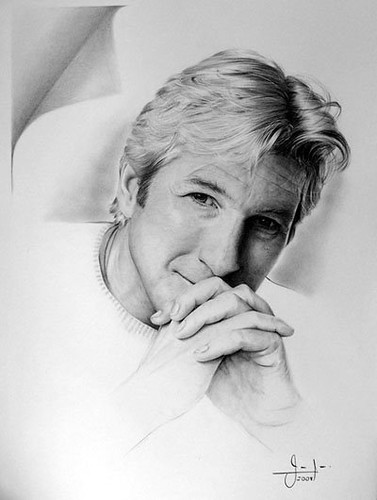
8. **Richard Gere, The Lords of Flatbush**: Long before they were massive Hollywood fixtures, Richard Gere and Sylvester Stallone were both cast in the 1974 coming-of-age film *The Lords of Flatbush*. However, their working relationship got off to a rocky start, to say the least. Stallone recounted their immediate dislike for each other, noting how Gere would apparently “strut around in his oversized motorcycle jacket like he was the baddest night at the round table,” setting the stage for tension.
Things escalated significantly during a rehearsal in a car. Stallone described how some of Gere’s lunch – specifically “a half a chicken covered in mustard with grease nearly dripping out of the aluminium wrapper” – ended up on his thigh, creating what he called “A small, greasy river of mustard.” Stallone admitted he then “elbowed him in the side of the head and basically pushed him out of the car,” which, understandably, was the final straw.
With tensions reaching this point, the director had a difficult decision to make. According to Stallone, “the director had to make a choice” between the two actors, and ultimately, Gere was “given his walking papers.” This early clash highlights just how personal dynamics can sometimes derail a casting, even between actors who would later become huge stars. Decades later, they reportedly almost had another physical confrontation over Princess Diana at an event, proving some feuds just don’t fade easily!
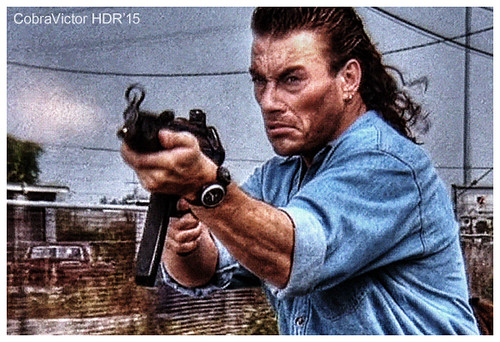
9. **Jean Claude van Damme, Predator**: It’s hard to imagine the iconic movie monster from *Predator* being played by anyone other than the imposing Kevin Peter Hall, but martial arts star Jean-Claude van Damme was initially cast in the role. There are a few different, conflicting tales explaining his departure, adding a layer of mystery to the firing. Van Damme himself cited issues with the demanding costume and stilts, saying he hated wearing the outfit and struggled to breathe inside it.
His then co-star, Bill Duke, offered a more dramatic account, claiming van Damme was fired after passing out in the costume due to dehydration. Duke recalled a producer issuing a stern warning: “If you pass out again, I’m gonna fire you,” implying the dehydration incident directly led to his dismissal after it reoccurred. However, other reports suggest the filmmakers simply weren’t happy with the initial look of the creature costume and, after redesigning it, decided they needed a different actor altogether.
Another rumor floating around is that producers got annoyed when van Damme allegedly damaged the alien’s head by throwing it to the floor. Adding to the creative differences theory, it’s also been suggested that van Damme wanted the alien Predator to be a kickboxer, which didn’t align with the director’s vision for the character. Regardless of the exact reason or combination of reasons, the casting change ultimately led to Kevin Peter Hall, chosen for his height after the costume redesign, taking over the role that would become legendary.

10. **James Remar, Aliens**: Character actor James Remar was originally cast as Corporal Dwayne Hicks in the highly anticipated 1986 sequel *Aliens*. This was a significant role in a major sci-fi film directed by James Cameron, a promising opportunity indeed. However, after just a few weeks into the London shoot, Remar left the production.
At the time, the public explanation for his departure was that he needed to attend to “urgent matters at home,” a common reason given for actors leaving projects quietly. It wasn’t until much later that Remar revealed the real, more personal reason behind his firing. He admitted on a podcast that he had a “terrible drug problem” at the time, stating, “I was initially cast as Corporal Hicks, and I was fired after a couple of weeks of filming because I got busted for possession of drugs.”
Remar reflected candidly on the impact of his struggles, saying, “I had a great career and personal life, and messed it up with a terrible drug habit.” His honesty shed light on how personal issues, particularly addiction, can tragically derail even the most promising roles in Hollywood. Michael Biehn was brought in as his replacement and went on to make the character of Hicks his own, solidifying his place in sci-fi history.
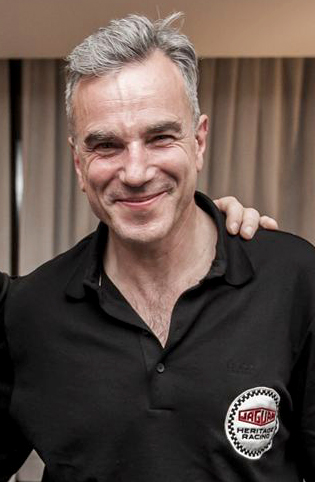
11. **Kel O’Neill, There Will Be Blood**: Stepping into a film opposite Daniel Day-Lewis, known for his intense method acting, sounds like an intimidating challenge for any performer. So, when reports surfaced that actor Kel O’Neill had left Paul Thomas Anderson’s acclaimed 2007 film *There Will Be Blood* because he was reportedly intimidated by Day-Lewis’s process, it seemed to fit the narrative surrounding the legendary actor’s mystique. Director Anderson himself offered a simpler explanation at the time, stating that O’Neill “just wasn’t the right fit” for the role of Eli Sunday after production had begun.
Paul Dano was ultimately brought in to replace O’Neill. Interestingly, Dano had already been cast in the film as Eli’s on-screen brother, Paul Sunday. To accommodate the casting change, the script was conveniently rewritten to make the two siblings twins, allowing Dano to effectively play both parts and take on the more prominent role.
About a decade after the film’s release, O’Neill presented his own perspective on his departure in an interview. He claimed that the issue wasn’t intimidation by Day-Lewis, but rather a lack of connection and rapport with director Paul Thomas Anderson. O’Neill noted that while “every other actor I know had a relationship with Paul that was super positive,” that simply “just didn’t happen with me.” He also shared that he had a feeling he’d get the boot anyway, suggesting perhaps he wasn’t fully committed or clicking with the direction things were going.
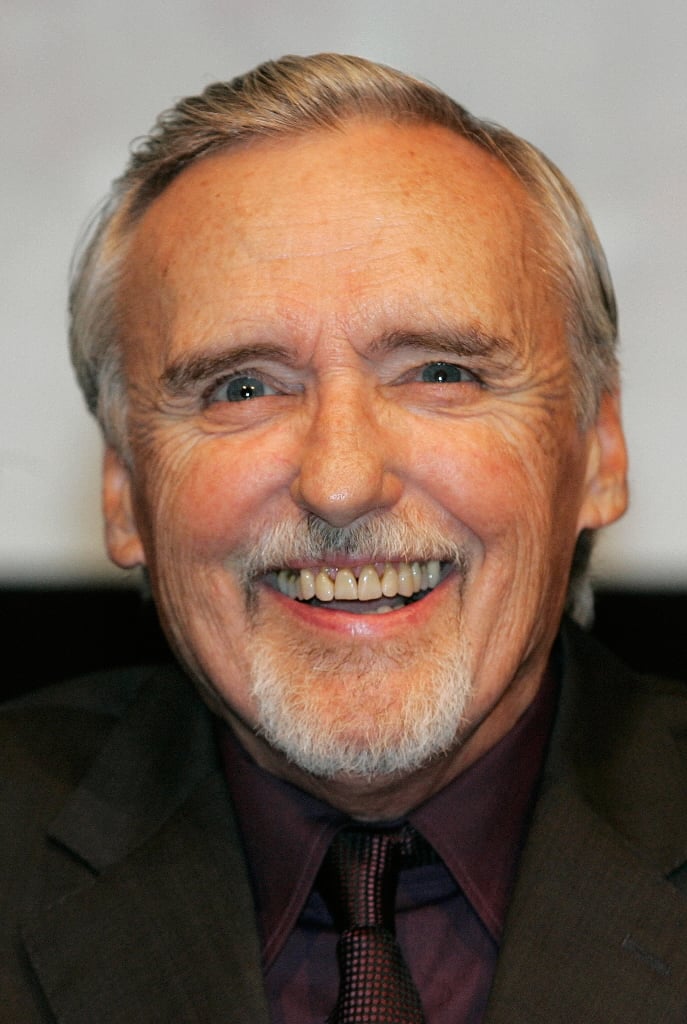
12. **Dennis Hopper, The Truman Show**: By the 1990s, Dennis Hopper had established himself as a go-to actor for playing complex, often villainous characters in films like *Speed*. This made him seem like a solid, intriguing choice on paper for the role of Christof, the creator and controller of the reality show in *The Truman Show*. However, the filmmakers reportedly weren’t entirely sold on the casting initially, and their doubts only grew once filming began.
Hopper’s time on the project was remarkably brief. After just a single day of shooting, he left the production. Hopper later explained the very specific terms of his hiring and departure: “Scott Rudin, the producer, had made an agreement with the director [Peter Weir] that […] he didn’t want me to do the part, and if he didn’t like what I did after the first day’s dailies then he would fire me.” True to the agreement, after reviewing the first day’s footage, they decided to let him go.
The role of Christof was then taken over by Ed Harris. Harris’s performance in the film was critically acclaimed and proved to be a perfect fit for the complex, god-like character. He even went on to receive an Oscar nomination for Best Supporting Actor for his work in the movie, highlighting just how significant a last-minute casting change can be.
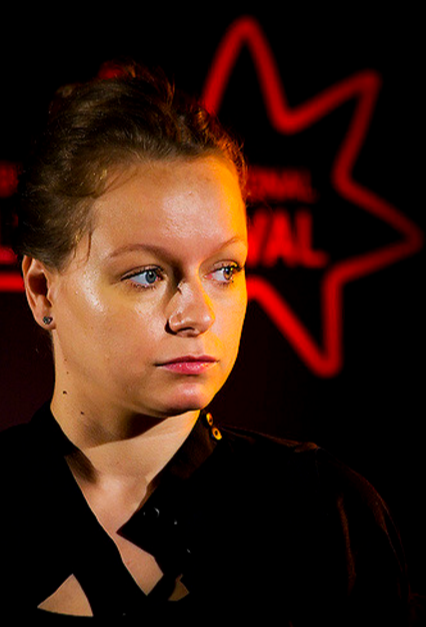
13. **Samantha Morton, Her**: Creating a character that exists solely as a voice requires a unique kind of performance, and Spike Jonze’s 2013 film *Her* presented just such a challenge. Actress Samantha Morton was initially cast to provide the voice for the advanced computer operating system, who Joaquin Phoenix’s character Theodore falls in love with. Morton reportedly completed her recordings, seemingly finishing her contribution to the film.
However, it was during the editing process, well after principal photography had wrapped, that director Jonze had a significant realization. He reportedly felt that Morton’s voice work, while perhaps good on its own, ultimately didn’t quite “mesh” with the character of Theodore in the way he had envisioned. This led to the difficult decision to replace her entirely.
Scarlett Johansson was brought in to re-record the voice of the operating system. This required Johansson to record her parts amidst filming for *Captain America*, adding another layer to the story of this post-production replacement. The decision illustrates how, sometimes, even a finished performance doesn’t fit the overall puzzle of a film during the final stages of editing, leading to a casting change that happens out of the public eye until after the film is released.

14. **Kevin Spacey, All The Money In The World**: In a situation unique due to real-world events, Kevin Spacey was cast as J. Paul Getty in Ridley Scott’s 2017 film *All the Money in the World*. Spacey had not only completed his principal photography for the role, but trailers featuring his performance had already been released to the public, showcasing his transformation into the character.
However, in the fall of 2017, a series of misconduct accusations against Spacey surfaced, leading to his removal from various projects and a significant shift in his career. Director Ridley Scott was faced with an unprecedented challenge: how to release a film where a central performance was now surrounded by major controversy.
Scott made the remarkable and incredibly difficult decision to completely replace Spacey in the finished film. Veteran actor Christopher Plummer was quickly cast as J. Paul Getty, and Scott scrambled to reshoot all of Spacey’s scenes with Plummer in less than two weeks, just before the film’s planned release date. This extraordinary move, requiring immense effort and coordination, allowed the film to proceed with its release plans, demonstrating the drastic measures filmmakers might take in response to unforeseen circumstances impacting a cast member.
And there you have it! A look into just some of the moments where the path to the big screen took an unexpected turn, proving that in Hollywood, even after landing the part, nothing is truly set in stone. Sometimes creative visions clash, sometimes personal lives intervene, and sometimes, things just don’t fit in the edit suite. It’s a reminder of the complex, often unpredictable dance between actors, directors, and the many forces shaping the movies we love.



